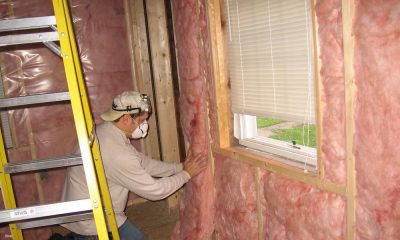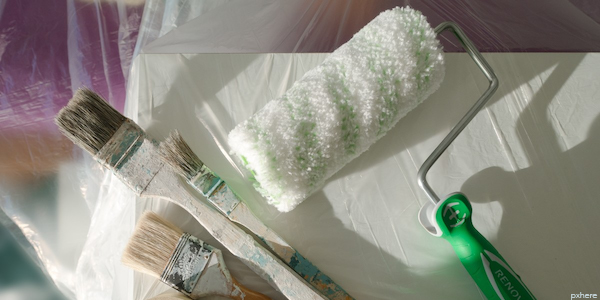General
Chris Ashenden’s Top Property Investing Tips and Suggestions
I have read through all of Chris’s postings on PropertyTalk.com and have extracted what I think are his helpful hints and listed them here.

I have read through all of Chris’s postings on PropertyTalk.com and have extracted what I think are his helpful hints and listed them here.
- Taking people in the know who have DONE it out for a lunch/coffee will frequently be the one of the best investments you can make.
- Dream VERY BIG, start small, break it into small steps and try and SYSTEMITIZE the whole thing so that it can grow itself.
- I learnt a BUNCH about the power of leverage on other people’s time, other peoples skill sets, and other peoples networks.
- I have NEVER paid retail or anywhere near it for any property
- I only buy a property that will boost my debt servicing ability.
- The ability to take responsibility for your circumstances is very very powerful and also very enlightening.
- Buying well below market and taking care of debt servicing (I bought for cashflow and always aimed to boost my borrowing power with each purchase) and maintaining healthy LVR’s.
- As part of my goal setting process I have PLANNED benchmarks where I am to stop and smell the roses, reassess, and decide if I am still doing what I want to be doing, for the right reasons.
- Gradually picked out the agents who were willing to work to my format.
- a) Especially if I was a beginner, I would pick one market and get to know it very well, this gives you a performance advantage over 95% of the other buyers out there.
b) While you can buy well in any market if markets are hot where I am and I was a beginner I would move to where the going was comparatively easy, yes MOVE – or at least commute. This will make life a lot easier, there is no need to fight the herd.
c) I would go looking for agents and build my BRAND with the agents. For me it was I WILL SETTLE ON EVERYTHING THAT MEETS MY CRITERIA (this is great for agents) and especially now I CAN BUY HOUSES FOR CASH – IN THREE DAYS
d) Make written offers. Look at houses (either before or AFTER your offer, depending on you, but if you look at a house, MAKE AN OFFER). Repeat. - Banks look at when lending:
YOU, your history, your situation, their exposure to you, etc
LOAN TO VALUE RATIOS, both on the loan you are applying for and your entire position
DEBT SERVICING, your total existing income plus the expected income from the purchase. Most banks will look at around 75% of a residential property’s gross income as being available for debt servicing. There are many interesting formulas that the different banks use but this is a general guide. - If you want a large portfolio make sure every property you buy to keep IMPROVES your debt servicing ability. Keep your LVR at 80% or lower where ever possible and move to different lenders early. Some lenders are much more conservative re your overall position than others. So if you want to be HUGE a good idea is to borrow from the conservative ones early while you can and move slowly towards to more aggressive lenders as you progress. Talk to a good mortgage broker and arrange financing before you NEED it.
- My criteria…Any house, any condtion, any area……………my price
- YOU MAKE YOUR MONEY WHEN YOU BUY
- We know the market we play in very well
- Motivated vendors, ability to add value, ugly houses or houses a long time on the market.
- The address of each property that had the potential to cashflow the way I wanted it (for me it was 3 bedrooom plus with garage on full site in a certain price BAND)
What it was (eg 4 bedroom plus sleepout on subdividable section)
Why the vendor was selling. (ask this verbally as you go over the houses with the agent)
The list price
What the agent THINKS you could own it for
What the property would be worth and/or would/could value to
Work to be done (general deferred maintenance and/or anywhere the agent thought value could be added)
What it would be worth DONE up and or would/could value to
What it would rent for (either as is or done up.) - It is also imerative that you have the ability to make decisions QUICKLY.
- Be psychologically prepared to fail often and frequently and work on your sales and people skills (or do it in the process) and see how you go.
- In any instance where the tenant has the right to buy or settle the property I use a P and I approach to ensure I am always reducing my debt in line with their slowly reducing purchase price.
- 1) Either leave it interest only if I want to draw maximum cash for utilization other places AND/OR I am worried that I may not be able to refinance the property later (I subscribe to the belief that you should always try to have loans sorted before you need them)
2) Convert it to principal and interest and forget about it (when you get bigger most banks like to have a bunch of your loans being paid down anyway as it makes them feel all warm and fuzzy. Also I have found that being able to forget about things works well for me)
3) In any given entity, set up one or more of the loans as a revolving credit facility and park the spare cash there. Keep the other loans interest only. If/when you pay down one of the loans, leave the facility there and convert another one of the loans in that entity to revolving credit and continue until you need to redraw the funds or have paid down the lot and are left with a bunch of revolving credit facilities all waiting for action.
Option 3 is what I would normally recommend to most people with a small to medium sized “standard” buy and hold portfolio - I am a fan of both and believe that as long as you know and understand what your money is doing and why and that matches what you plan to have it doing, then there is no real right or wrong.
- Disclosure and relationship building are very important and to this end I am happy to pay a higher interest rate and more fees and get my trading loans from elsewhere other than the main banks.
- if someone offers me REALLY good money for a property – I will sell it.
- if its costing you money and you can’t find a way to get out of it, cut your losses and move on.
- I will buy any type of house that’s under valued, tidy it up as required and flick it. I have done this in a range from a $35,000 property in Invercargill to a $700,000 property in Auckland and will happily go higher or lower if the deal stacks up.
- Just keep the trades and the buy and holds in completely seperate entities.
- over time you would have your own house and bach completely compartmentalized from the others and seperated by both entity AND ideally by LENDER.
- What I would do starting again is:
ONE trust set up properly for buy and hold
ONE trust set up properly for trading properties
ONE trust set up properly for wealth retention (family house, batch, tons of cash and your favourite classic ferrari). - I won’t buy a house as a keeper unless it delivers me sufficient velocity on both my borrowings and capital. This means that I must buy it well under market and be able to refinance all my original capital out (without relying on capital gains) AND it must deliver a return on my end borrowings sufficient to not only BOOST my net borrowing power with lenders (on a debt servicing basis) but also deliver to me a REAL positive cashflow return before tax, proportional to the amount borrowed.
- 1) I invest in real estate for PROFIT. CASH, CASHFLOW, and EQUITY. I want you to show me the money and I don’t care if there isn’t a single L for LOSS in there. I’m not interested in a system that is based on LOSSES and NOT DOING VERY WELL.
2) I do not want to HOLD, CREATE or GROW wealth in my own name. That is the number one point. - Accept the reality that if you ever want to be reasonably rich, you should try and do what rich entrepreneurs and investors DO. Think of the BIGGER picture. I want a set up that will let me play between my entities, as that is where the real money is always going to be and it is actually where I WANT it to be.
- set yourself up in a structure that can accommodate the scenario where the bulk of your taxable revenue actually comes in from a different source other than your direct efforts (ie job).
- In my opinion, and I am not alone, if the above don’t apply to you and you want to be rich faster than you want to be average, dump the LAQC.
- Set up a buy and hold trust and start moving your equity across sooner rather than later.
- If you wish to stay in control of your destiny and ramp up your wealth creation (as it relates to growth of an internally funded PI portfolio), NEVER buy a property for retail or you will have to join the rest of the masses and BUY, HOLD and PRAY the values go up. Great cashflow, but the velocity on capital in REI comes from MAKING MONEY WHEN YOU BUY. Period.
- Trustees: I prefer trusts with a corporate trustee (instead of individuals). This gives a bunch of advantages and to put it bluntly, if your accountant looks at you with a blank face when you suggest it to him, move on.
Trust deed: The trust deed be flexible, give you all the powers and might need and should be up to date. By this last one I mean that deed should be reviewed and updated at least yearly by a legal professional (typically a specialist barrister) who is current with trust case law.
Beneficiaries: This will vary depending on your circumstances and whether or not you are also going to set up a trading trust (or be tainted in your own name).
I get the deeds reviewed by both my lawyer and a specialist barrister. - Assuming you have solid borrowing power nothing will give you greater direct velociy on your deposits than buying WELL below value and being able to refinance all of it (or more) out sooner rather than later.
- Make sure you are set up right structurally so the wealth is growing where its hard for people to touch it. And don’t forget to check out your own back yard over there for various investment options, not necessarily just REI either, when looking for velocity on your capital.
- Money follows management – the better you are at what you do, the more specialised your skill set/resources and the better the track record, the less you will have to give away to do the deal. The more predictable and sustainable the investment, the lower the required return.
Put yourself on the other side of the table – if it seems fair and you (or nearly anyone) would do it if your circumstances were reversed then it is probably a fair deal.
But before you do any of these, find out what they want (so you can go and get it, and give it to them – part of KJC’s three steps to being a billionaire). - Joint Ventures (JV)
For buy and hold, to do the deal try any or a mix of: a fee for finding and securing a GOOD deal, an ongoing management fee (this can be on the high side), a percentage share of any value increase above the purchase price (this should be on the very low side unless YOU are creating any added value)
For trading: look at a finders fee again, plus project management fee and split of the profits. OR, just a straight profit split, OR giving the financier a preferred return followed by a split of the profits OR and as the trader, this is my preference, give them a fixed GUARANTEED return (your nuts are on the line if you don’t perform) and no profit split. If all goes to plan, this last one is the cheapest cost of capital for the trader and the most secure (and therefore probably lowest) return for the investor. - First rule, and it always is – Find out what they want.
- Work on YOU first and foremost, but move to an easier market to get the most bang for your buck.
- Clarity = Power.
- When asking for their perception of market rent, make sure you word all questions along the lines of “What could YOU get this to rent for?” leave the responsibility in their court with the underlying hint that if you buy it, you would expect them to deliver just that. This normally results a more honest answer.
- I personally would use a property manager when buying from afar anyway, so in reality this would merely be a part of the interview process anyway. If I was intending to buy and hold going into the new area then I would be at least as interested in the local demand for rental accomodation as I would be for the market rent on the property. You never know mate, if there is more demand for rental property than there is for rental accomodation then you might decide it would be more fun to TRADE in that market.
- For determining the rent and rent market in a new area my other preferred option is phoning “for rent” adds, finding out how much they want for the rent, (and who is doing the renting, manager vs landlord), the conditiion of the house and of course, how long they have been trying to rent it and how many calls they are getting.
- For the record if you are going pro (full-time, even for just a few weeks) then I would expect between 5 to 10 written offers to be the minimum average per “working” day. At the very least, ONE for EVERY house you physically look at. Even if you don’t buy a house, you will learn a bunch and be well on your way with at least a couple of agents. (You will almost definitely buy a house.)
General
Growing Economy Increases Housing Demand
Auckland is New Zealand’s economic hub and with our economy set to continue to grow over the next couple of years demand for housing in Auckland will remain high. Property values in New Zealand have increased by more than 25 percent in 3 years and NZHerald also reports Auckland’s the median house has risen by 46.5% however there are investors buying Auckland residential property for less than market value.

Auckland is New Zealand’s economic hub and with our economy set to continue to grow over the next couple of years demand for housing in Auckland will remain high.
Property values in New Zealand have increased by more than 25 percent in 3 years and NZHerald also reports Auckland’s the median house has risen by 46.5% however there are investors buying Auckland residential property for less than market value.
For some investors in the Auckland property market the highly profitable property deals are apparently still out there. PropertyTutors mentoring clients have continued to buy residential property below market value in 2015. This month alone Lauren a new investor under the guidance of mentor Sean Wood bought two properties in 24 hours for less than the market price who would have thought it possible?
Also with demand for property at an all time high, investors like James and Elliot are managing to sell their properties whilst they’re still renovating them. This lowers the investor’s costs as there are no property marketing or listing fees.
Head of Trade Me Property Nigel Jeffries says the latest Property Price Index showed that while the average asking price in Auckland has risen by 20 per cent in the last year, small houses (1-2 bedrooms) had increased 24 per cent and apartments were up a “staggering” 49 per cent in a year.
Trade Me Sales Price Index
As long as our economy continues to grow, demand for Auckland housing in all its forms will be strong.
This blog article was written for PropertyBlogs by Mobilize Mail.
General
Nelson – Hot Location For Lifestyle
Baby boomers particularly those currently living in Auckland may be setting their sights on Nelson and who would blame them. Nelson offers the perfect lifestyle with a mediterranean climate, idyllic nature walks, sandy beaches, culinary delights and of course it’s one the cultural arts capitals of New Zealand too.

Baby boomers particularly those currently living in Auckland may be setting their sights on Nelson and who would blame them. Nelson offers the perfect lifestyle with a mediterranean climate, idyllic nature walks, sandy beaches, culinary delights and of course it’s one the cultural arts capitals of New Zealand too.
The house and land packages in Nelson are really too good to be true. Imagine selling your property in Auckland, capitalising on the high property values, and securing a better lifestyle in a brand new home (mortgage free) in one of the safest and friendliest places in the world! This was once a move only the wealthy could afford. Now it’s a reality for so many Aucklanders thanks to the buoyant property market.
The latest annual property sales report showed an increase in property values of 17 percent for Auckland. The average asking price for a property in Auckland starts at seven hundred and fifty thousand dollars, while in Nelson brand new home and land for sale deals start from two hundred and fifty thousand dollars.
Nelson is out of the spotlight and flying under the radar right now, but it may not last for much longer. The property market is on the move in this region with Trade Me Sales Price Index reporting property values up by over six percent during the last property sales season.
Aucklanders in their middle to late years of life will be questioning their current position. They will want to time their move so they can cash in their property equity to create a better lifestyle somewhere else; probably in New Zealand’s answer to the Med – Nelson!
This blog article was written for PropertyBlogs by Mobilize Mail.
General
Weekend Renters Trash Family Home
What can go possibly go wrong renting out your home for short term stays via a very reputable and popular online travel website? For most homeowners it all works out really well. However for this young Canadian couple it went horribly wrong.

What can go possibly go wrong renting out your home for short term stays via a very reputable and popular online travel website? For most homeowners it all works out really well. However for this young Canadian couple it went horribly wrong.
On NZHerald it was reported the young Canadian couple found out just how bad things can get when they rented out their home for a weekend. While the $875 rent was really attractive and it’s the reason so many other homeowners use the travel website Airbnb to rent out their properties on short stays, for this couple it was too good to be true.
An early txt message from a neighbour on Monday morning suggested not all was well at their home. Their weekend renters had well and truly trashed their home and caused $80,482 worth of damage to the property. Could this have been avoided? Well not entirely but like a goods trading site e.g. TradeMe where sellers and buyers build up a reputation for their trading activities the same applies on sites like Airbnb. Therefore as a renter or landlord you can review the feedback on the interested parties and make your selection based on it. It is unclear whether the Canadian couple took this action.
‘Caveat Emptor’ (buyer beware) is the lesson here – always do your due diligence on anyone interested in renting your property.
This blog article was written for PropertyBlogs by Mobilize Mail.
-

 Management5 years ago
Management5 years agoHome Insulation Requirements
-

 Investment5 years ago
Investment5 years agoAnother date NZ property investors are dreading
-

 Accounting & Finance5 years ago
Accounting & Finance5 years agoLow Interest Rates Winners and Losers
-

 Build5 years ago
Build5 years agoHow to Choose and Purchase a Suitable Property to Subdivide
-

 Management6 years ago
Management6 years agoAttracting More Business Travellers To Your Auckland Airbnb Property
-

 Investment6 years ago
Investment6 years agoWould You Be a Landlord in 2018?
-

 Tenants6 years ago
Tenants6 years agoCoworking Countdown – 4 Things to Prepare Before You Move In
-

 Renovations6 years ago
Renovations6 years agoFive easy steps to boost the appeal of your home

